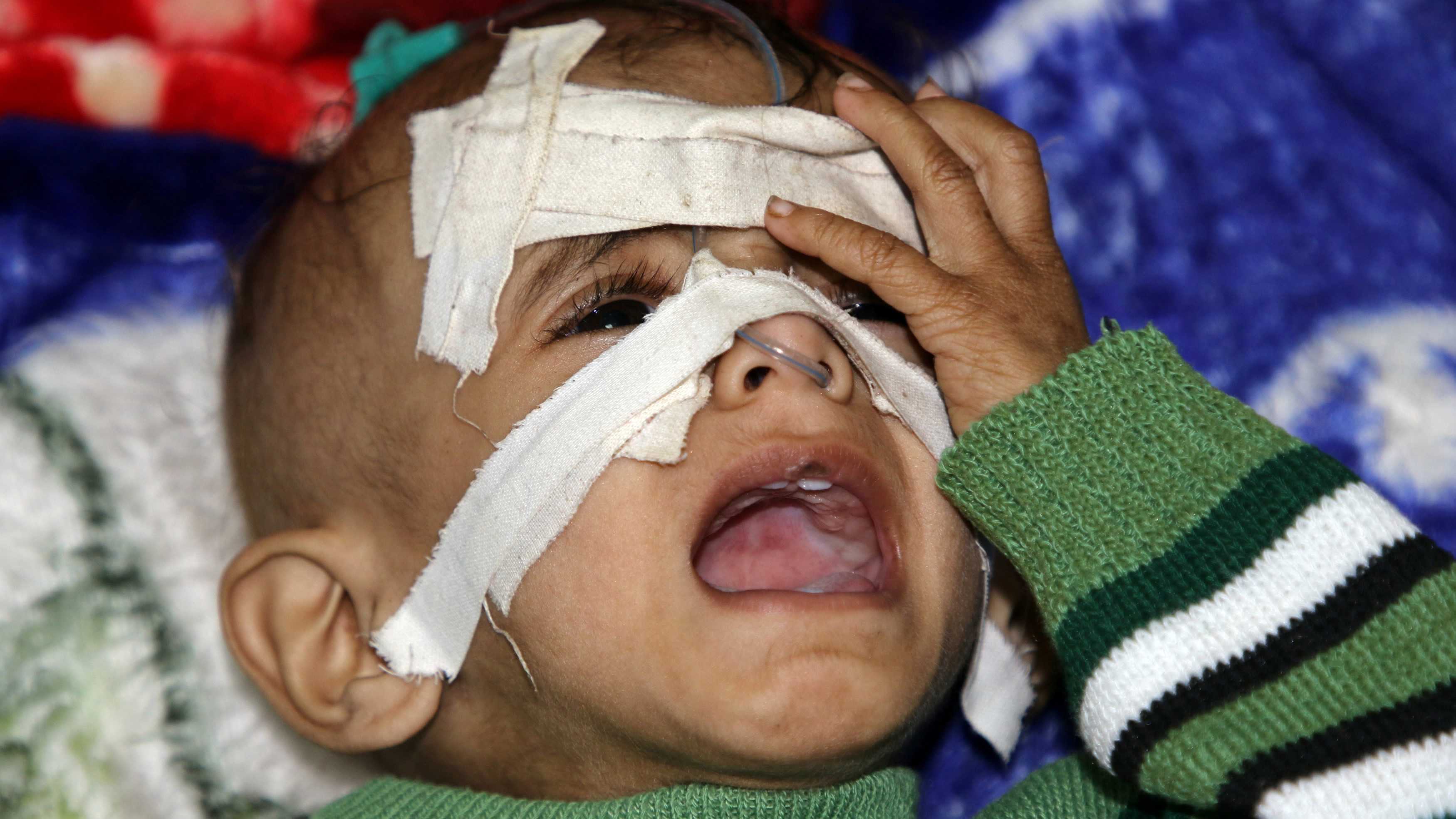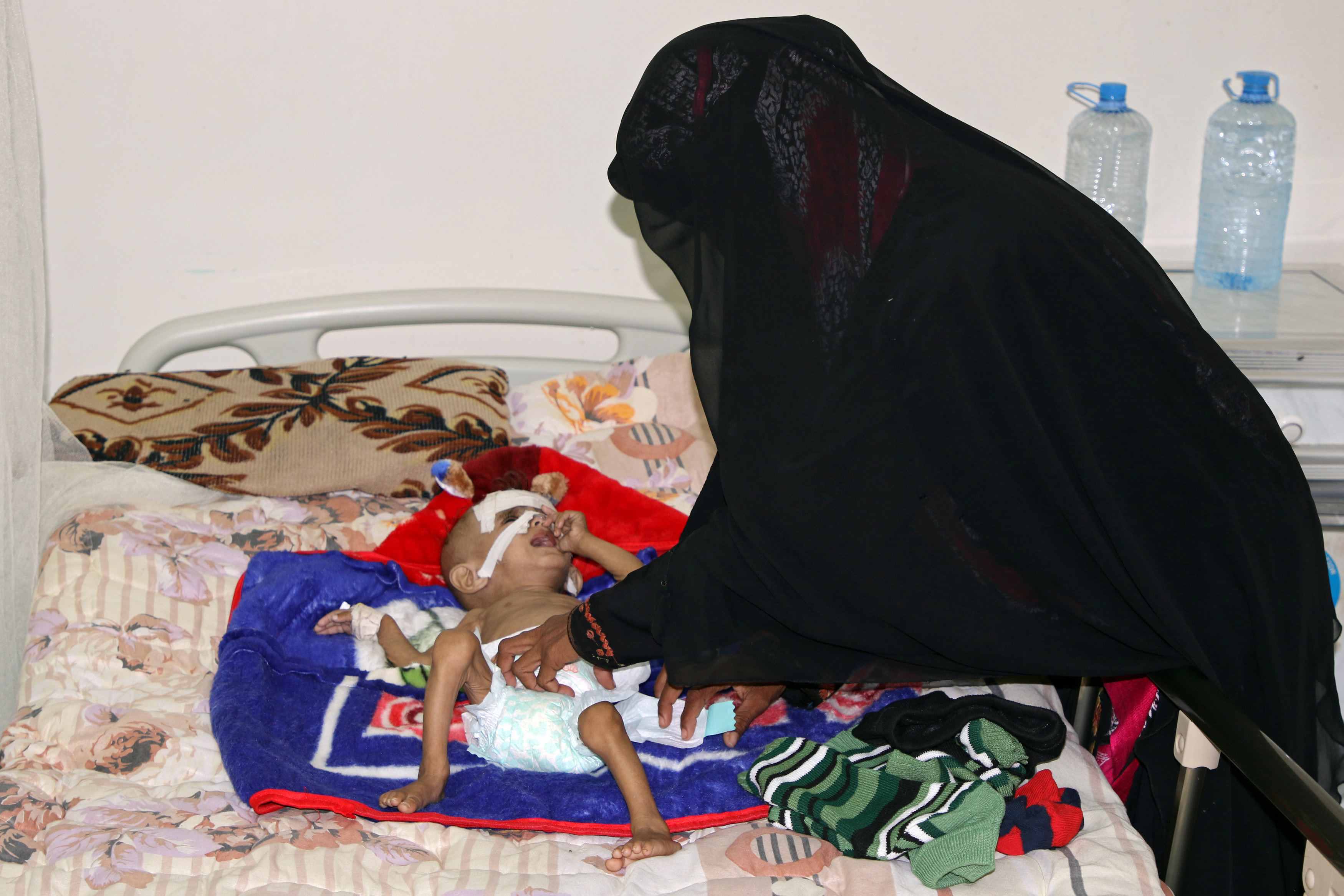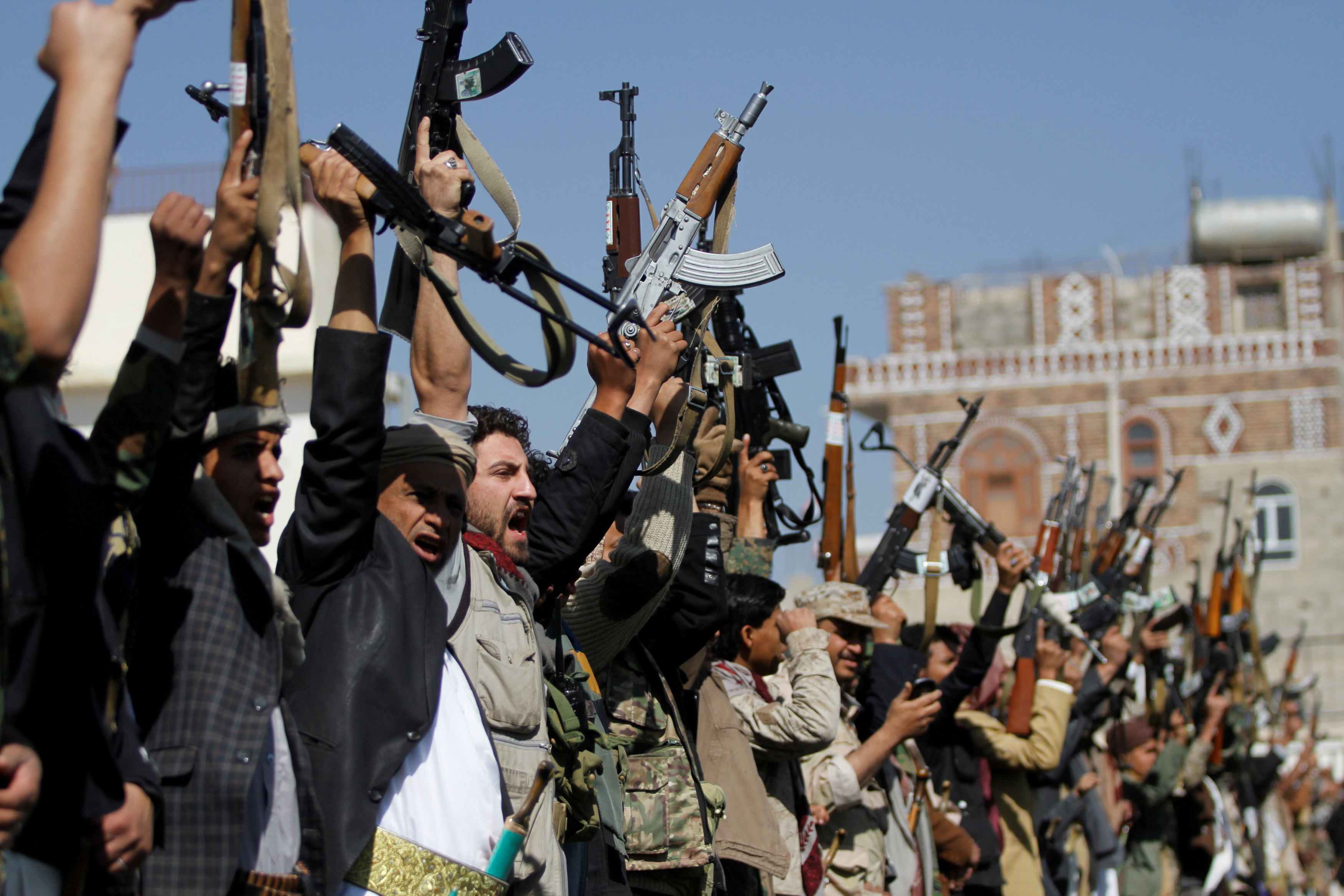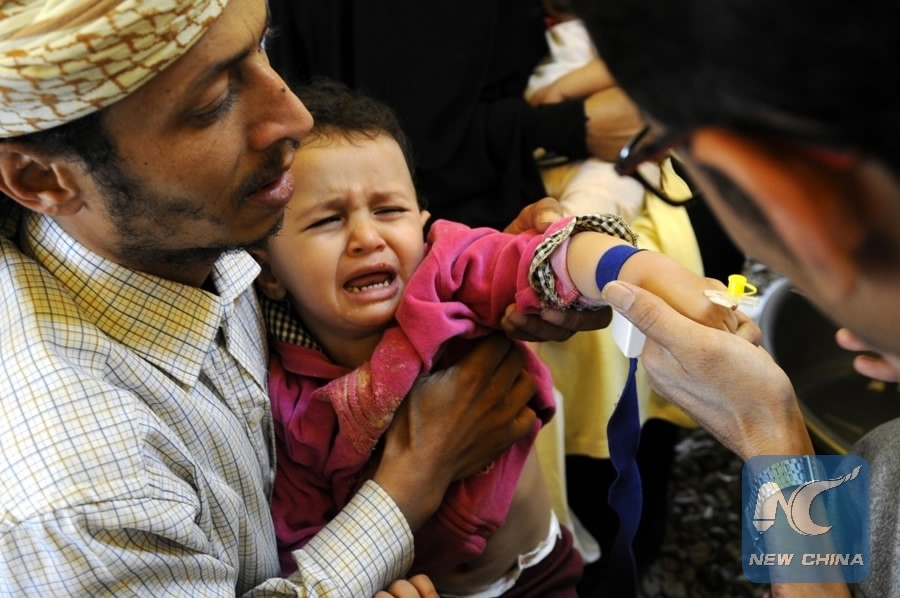
World
11:20, 22-Dec-2017
Suspected cholera cases reach one million in Yemen: ICRC
CGTN

The number of suspected cholera cases in war-torn Yemen has reached one million, the International Committee of the Red Cross (ICRC) said on Thursday.
"Yemen suspected cholera cases has reached the threshold of one million, amplifying the suffering of the country caught up in a brutal war," the ICRC said on its Yemen Twitter account.
The World Health Organization warned in November that some 2,200 people have already died from the waterborne disease, which has propagated rapidly due to deteriorating hygiene and sanitation conditions.

The mother of one-year-old Sameer al-Dhanbari, who suffers from severe malnutrition, helps him as he lies on a bed at a hospital in Houta city, in the southern province of Lahej, Yemen, on December 5, 2017. /Reuters Photo
The mother of one-year-old Sameer al-Dhanbari, who suffers from severe malnutrition, helps him as he lies on a bed at a hospital in Houta city, in the southern province of Lahej, Yemen, on December 5, 2017. /Reuters Photo
Marc Poncin, the emergency coordinator for Doctors Without Borders (MSF) in Yemen, said cholera mortality rates had been on a downtrend in recent months but that the disease was far from vanquished.
"The vibrio is a very resistant bacteria that can survive in water for a very long period of time," Poncin said, warning that next year's rainy season could bring an uptick.
"As soon as there is a favorable situation for its increase then it's there," he added.
Yemen is in the midst of a bloody war between pro-government forces backed by a Saudi-led coalition and Houthi rebels who control the capital.
Coalition air raids killed 43 Houthi fighters in the Red Sea province of Hodeida in the past day alone, amid a push by pro-government forces to advance toward a key port there, medical and military sources said.
Saudi Arabia and its Arab allies intervened in the conflict on the side of the government in 2015 with air strikes and a far-reaching blockade on its neighbor's air and sea ports.

Tribesmen loyal to the Houthi movement hold their weapons as they attend a gathering to mark 1,000 days of the Saudi-led military intervention in the Yemeni conflict, in Sanaa, Yemen, on December 21, 2017. /Reuters Photo
Tribesmen loyal to the Houthi movement hold their weapons as they attend a gathering to mark 1,000 days of the Saudi-led military intervention in the Yemeni conflict, in Sanaa, Yemen, on December 21, 2017. /Reuters Photo
In early November, the coalition tightened that blockade in response to a missile fired by the Shiite Houthis that was intercepted near Riyadh airport.
At the time, the UN aid chief warned the move would exacerbate an already dire humanitarian situation.
The blockade was partially lifted three weeks later under massive international pressure, namely over the closure of Hodeida port – a key to humanitarian and commercial deliveries.
The Iran-backed Houthis on Tuesday conducted another failed missile strike against Riyadh to mark the 1,000th day since the Saudi-led intervention.
The coalition said in a statement Wednesday that it would not resort to closing rebel-held Hodeida in the wake of the attack.
More than 8,750 people have been killed since Saudi Arabia and its allies joined the government's fight against the rebels, triggering what the UN has called the world's worst humanitarian crisis.
UNICEF vaccines arrive

A cholera-infected child receives medical treatment at the Sabeen hospital in Sanaa, Yemen, on June 15, 2017. /Xinhua Photo
A cholera-infected child receives medical treatment at the Sabeen hospital in Sanaa, Yemen, on June 15, 2017. /Xinhua Photo
Meanwhile, a plane charted by the United Nations Children's Fund (UNICEF) landed in Yemen's capital city of Sanaa on Thursday, delivering nearly six million doses of essential vaccines for millions of children at risk of preventable diseases, Xinhua reported.
"Vaccinating children in Yemen now is critical to protect them from preventable diseases and death. It is vital that vaccines and other lifesaving supplies for children continue to flow into Yemen and across the country unimpeded. They are a lifeline for millions of children," said Meritxell Relano, UNICEF Representative in Yemen.
The current diphtheria outbreak has reportedly infected over 300 people and killed 35, with most cases and deaths being reported among children.
Since 2015, Yemen has been in a conflict between forces loyal to President Abdrabbuh Mansour Hadi and those allied to the Houthi rebel movement.
The country is in the grips of the world's worst humanitarian crisis, with restrictions on fuel and food imports further complicating emergency response.
UNICEF reiterates its call on all parties to allow unhindered humanitarian access to all of Yemen's land, sea and air ports and to facilitate the distribution of lifesaving assistance for children inside the country.
[Top Photo: One-year-old Sameer al-Dhanbari, who suffers from severe malnutrition, cries as he lies on a bed at a hospital in Houta city, in the southern province of Lahej, Yemen, on December 5, 2017. /Reuters Photo]
7420km
Source(s): AFP
,Reuters
,Xinhua News Agency

SITEMAP
Copyright © 2018 CGTN. Beijing ICP prepared NO.16065310-3
Copyright © 2018 CGTN. Beijing ICP prepared NO.16065310-3